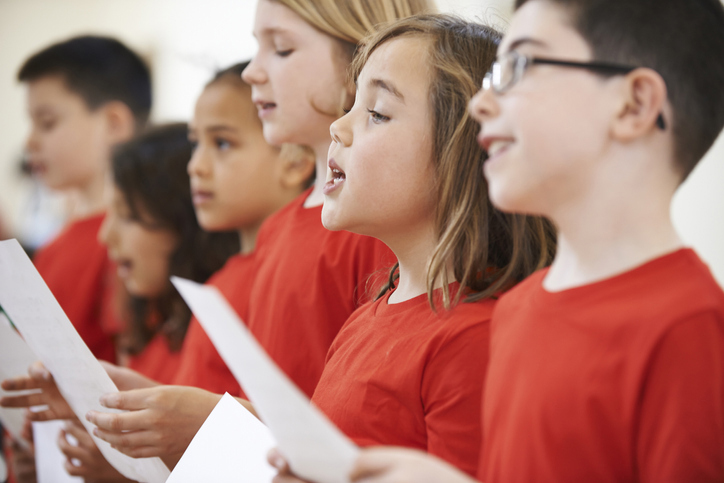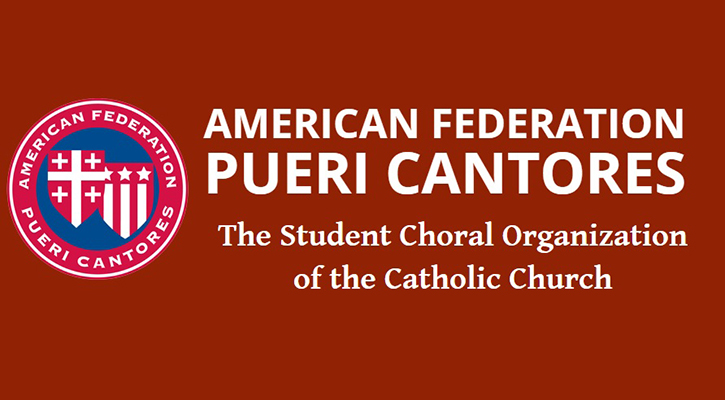
This blog was contributed by Jacqueline Leary-Warsaw, D.M.A., Dean of the Benjamin T. Rome School of Music, Drama, and Art at The Catholic University of America in Washington, D.C.
Saint Paul wrote in his letter to the Colossians, “Let the message of Christ dwell among you richly as you teach and admonish one another with all wisdom through psalms, hymns, and songs from the Spirit, singing to God with gratitude in your hearts” (Colossians 3:16). Saint Paul is only one of many prominent Church figures throughout history to recognize and profess the power of sacred music. Not only is music an avenue for us to praise God, but it is also a means for God to speak to us, and what better way is there for us to open this conversation with the Divine to our children than through sacred music. The American Federation Pueri Cantores (“AFPC”) does just that.
I was anxious to become involved with AFPC when Executive Director Jan Schmidt invited me to join the board of directors, because I know that participation in AFPC events is often life-changing for the young choristers. These youth are able to develop cultural compassion by travelling to the many festivals both in the U.S. and abroad, and they initiate and maintain friendships with other singers from all over the globe. In his World Day of Peace message for 2019, Pope Francis remarked, “Human relations are complex, especially in our own times, marked by a climate of mistrust rooted in the fear of others or of strangers, or anxiety about one’s personal security.” By singing in member choirs of AFPC, our children, the leaders of the future, are engaging with the “strangers” to which Pope Francis referred and as such actively loving their neighbors as themselves and creating a community in Christ.
As a singer myself, I can understand the vulnerability that prevents individuals from singing out on their own or in small groups. The students who participate in AFPC festivals and events often find themselves raising their voices in praise with hundreds of other students and building their confidence to actively participate in the liturgy and thus deepening their encounter with Christ. In his letter to the Ephesians, Saint Paul urges to “Pray in the Spirit at all times and on every occasion” (Ephesians 6:18). Through song, these students are engaging in prayer regularly and are strengthening their spiritual well-being.
AFPC is an organization deserving of support from all who enjoy and are enriched by sacred music. It acts as a resource through its performances and festivals by providing sacred and spiritual music to the public and exposing listeners to the joy that is found in singing praise to God. It offers our youth the opportunity to engage with others, challenges them to become better singers and better citizens, and exposes them to music they may not otherwise learn to enjoy. AFPC provides an avenue for us to support the arts in our schools and communities in a time when they are increasingly threatened to be cut. The Catechism of the Catholic Church recognizes the importance of music when it says, “The musical tradition of the universal Church is a treasure of inestimable value, greater even than that of any other art. The main reason for this preeminence is that, as a combination of sacred music and words, it forms a necessary or integral part of solemn liturgy.” By supporting AFPC, I know that I’m doing my part to keep arts alive in the community, promote the appreciation of sacred music, and foster the relationship between young people and the Church.
